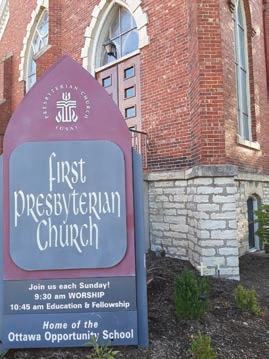
3 minute read
Setting Your Marriage Up For Success
Story by Courtney Jonsson
Pastor premarital counseling can be a helpful tool

After an engagement, the focus often shifts directly to planning the wedding. Picking out decorations, attire, catering, and flowers are all part of celebrating the love that you have found. But there is another important decision that a couple must make when deciding to be married, and that is whether to participate in a religious ceremony.
Each religion has distinct elements in its ceremonies based on its traditions. While a lot of traditions can be seen throughout the wedding ceremony, some religions have practices that take place before the couple gets to the altar. In the Christian faith, pastors often require premarital counseling before performing the ceremony.
Premarital counseling is a tool that couples can use to build a foundation for a successful marriage. During counseling sessions, pastors act as facilitators during the hard conversations couples should have before taking their vows. Prepare/Enrich, a premarital counseling program that pastors use to facilitate premarital counseling, is believed to reduce the risk of divorce by 30 percent for couples who go through counseling sessions before taking their vows.
Pastor Jennifer AmyDressler of OpenTable United Church of Christ in Ottawa and Pastor John Walker of First Presbyterian Church in Ottawa use the Prepare/ Enrich program with all the couples they perform marriage ceremonies for. They’ve found that these sessions provide clarity for couples and allow them to discover new things about themselves.

Amy-Dressler said premarital counseling allows the couple to approach topics with a sense of acknowledgment rather than judgment.
“The couple begins by taking an assessment of themselves. We review each assessment together and talk through the results. This allows a couple to know their differences and create systems that work around those differences,” she said.
“This is a process of discovery,” Walker said, while reflecting on the initial conversations of couples. A few topics that come up in the assessment include finances, roles within the household, family of origin, and conflict resolution styles. Identifying each other’s strengths and growth areas allows the couple to navigate their marriage with the promise they made to each other at the forefront.
“For richer or for poorer. In sickness and in health, for as long as we both shall live,” is a classic vow and a promise both individuals make to one another when they are married. But what happens when conflict arises?
“Remembering the promise you made to one another allows you to see the other through a different lens. You see the other through the promise you made to them rather than the conflict you are having,” Walker said.
Part of understanding each other comes down to the family of origin and conflict resolution styles, so they are brought up early on during premarital counseling. Learn- ing how the other was taught to deal with conflict and what they respond to when conflict arises will grant the couple an opportunity to approach with a sense of understanding.






















Figuring out how to move through a problem while the problem still exists can be tough because emotions are high. Couples should analyze the types of conflict resolution tactics that they respond to best when those tactics are not being deployed. Doing this will give the couple a game plan for when conflict arises.


























































Communication is the foundation of understanding. Choosing words wisely and being direct in communicating what you want is a way to ensure your needs are met and that you’re meeting the needs of the other. In talking with your partner, you continue to discover the mystery of the other. You’ll discover flaws within yourself, flaws within your partner, and flaws within each other.


Talking through things can get complex, but communication doesn’t always have to be.
Walker offered some tangible advice by saying, “Three word phrases couples should use often are ‘I love you,’ ‘Please forgive me,’ and ‘I forgive you.’”
Walker said active listening is just as important as direct communication. When you listen, you can grow closer to understanding the person you married.
Amy-Dressler mentioned a couple’s covenant in a different light.







“Once you choose marriage, you have a covenant between the two of you, but it now includes those who have gathered to support you in your marriage,” she said. “Your marriage is now recognized by wider society, so it affects your entire community.”

She said the couple should find ways to support wider society. After marriage, it is about you and your spouse as a unit, so she encourages couples to find a community where they are both loved equally by the members and where they can receive unbiased support when needed. This can be faith-based or not. Joining this group as a unit allows the couple an opportunity to receive support when times get tough and to offer support to others when they need it. Amy-Dressler also encourages the couple to find a cause they are passionate about and give a portion of their income to it. Doing this creates space for the couple to discuss other passions they may have and causes they are tied to.
For newly engaged couples, both pastors encourage exploring your relationship deeply, as the promise you make on your wedding day is much bigger than just yourselves. Remember to talk to one another, hold space to listen, and always move in the direction of growth.





